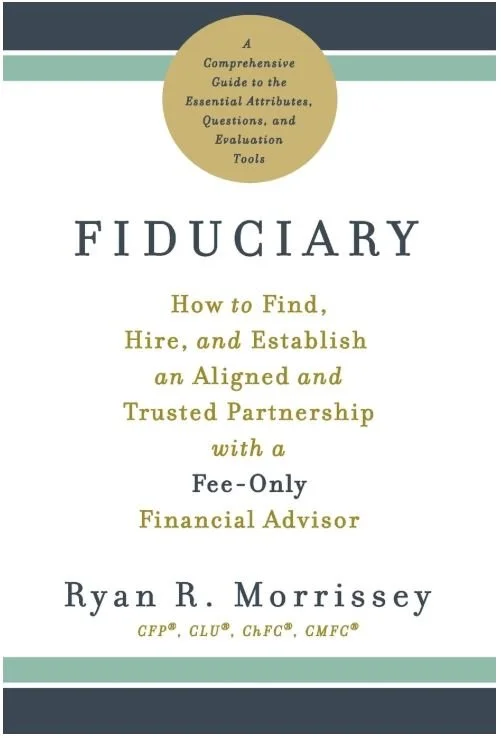Do I Need to Enroll in Medicare at Age 65?,
If you're approaching 65, you’ve probably been told by friends, family, or even coworkers that you need to enroll in Medicare. But is that really true for everyone? The answer is a bit more nuanced than a simple “yes” or “no,” and it’s a topic I’ve been getting a lot of questions about lately.
I’ve met with a number of clients recently, and many of them—like Jane, a client who’s turning 65 in October—are uncertain about whether they need to enroll in Medicare as soon as they hit that milestone. Jane, for example, works at a local hospital and assumed that enrolling in Medicare was a must. But after discussing her specific situation, we realized that the rules around enrolling in Medicare aren’t as clear-cut as many people think.
So, let’s dive into the five key things you need to consider when deciding whether to enroll in Medicare at age 65.
1. Do You Have Creditable Coverage?
The first question to ask yourself is whether you have creditable health coverage. If you’re still employed and have health insurance through a company with 20 or more employees, your employer’s plan might be considered "creditable coverage." This means you can delay enrolling in Medicare without facing penalties later.
In Jane’s case, since she works for a hospital with more than 20 employees, she doesn’t have to enroll in Medicare right away. However, she might still want to consider her options carefully, which we’ll get into later.
If you don't have creditable coverage (for example, if you're self-employed or retired), you’ll want to enroll in Medicare to avoid paying late enrollment penalties, which could cost you 10% more on your premiums for every year you delay.
2. Are You on a High Deductible Health Plan?
Many people are enrolled in high-deductible health plans (HDHPs), and these plans often come with health savings accounts (HSAs). If you are contributing to an HSA, you’ll want to think twice before enrolling in Medicare. Once you’re enrolled in Medicare, you are no longer allowed to contribute to your HSA.
HSAs are a great tool because they allow you to contribute pre-tax dollars, let your money grow tax-deferred, and then withdraw it tax-free for qualified medical expenses. If you're still contributing to your HSA and want to keep building your balance, you might want to hold off on enrolling in Medicare.
3. Will Medicare Be Less Expensive Than Your Current Health Plan?
Another thing to consider is whether Medicare will be more cost-effective than your current health insurance. Medicare Part B, which covers outpatient services, has a starting premium of $185 per month. But here’s the kicker: if you had a higher income in the past, you could be subject to a Medicare surcharge (called IRMAA) based on your income two years prior to enrollment.
You’ll also need to think about additional coverage. Medicare Part B doesn’t cover everything, and many people end up purchasing a Medicare Supplemental Plan (Medigap) to help with out-of-pocket costs, which can add another $100 to $400 a month.
So, if your current plan is much cheaper—say, $100 a month for premiums—it might make more sense to stick with your current coverage until you retire.
4. Is Your Spouse on Your Health Plan?
If your spouse is on your health insurance, their situation becomes important in your decision-making. For example, if Jane enrolls in Medicare, she will drop her employer health plan, which may leave her spouse without coverage unless he also enrolls in Medicare or finds alternative options.
One option for her spouse would be to go on COBRA, which allows employees to continue their health insurance after leaving the employer plan. However, COBRA can be expensive since the employer subsidy typically disappears. If COBRA premiums are high, it might make more sense for Jane’s spouse to look into an individual plan through the Affordable Care Act, which could offer subsidies to lower the cost.
Also, if Jane’s spouse has already met the deductible for the year, it might be worth considering staying on the employer plan for the rest of the year rather than switching to a new plan with a new deductible.
5. Is Medicare Part A a Good Option for You?
Lastly, even if you don’t need Medicare Part B right away, you might still want to enroll in Medicare Part A. Part A is typically free for most people, as long as you or your spouse have worked at least 10 years in the U.S. Part A covers hospital costs, so if you ever need hospitalization, it can be a great backup.
For example, if you’re still working and your employer health insurance doesn’t cover certain hospitalization costs, Part A might be a good way to supplement that coverage.
Closing Thoughts
So, do you need to enroll in Medicare at 65? It depends on your situation. It’s not a one-size-fits-all answer, and the decision requires careful consideration of your current health coverage, future plans, and costs.
If you’re still unsure, I encourage you to reach out for advice. Whether it's consulting with me or another health insurance expert, getting help can save you from making costly mistakes.
If you have a question or topic that you’d like to have considered for a future episode/blog post, you can request it by going to www.retirewithryan.com and clicking on ask a question.
As always, have a great day, a better week, and I look forward to talking with you on the next blog post, podcast, YouTube video, or wherever we have the pleasure of connecting!
Written by Ryan Morrissey
Founder & CEO of Morrissey Wealth Management
Host of the Retire with Ryan Podcast




